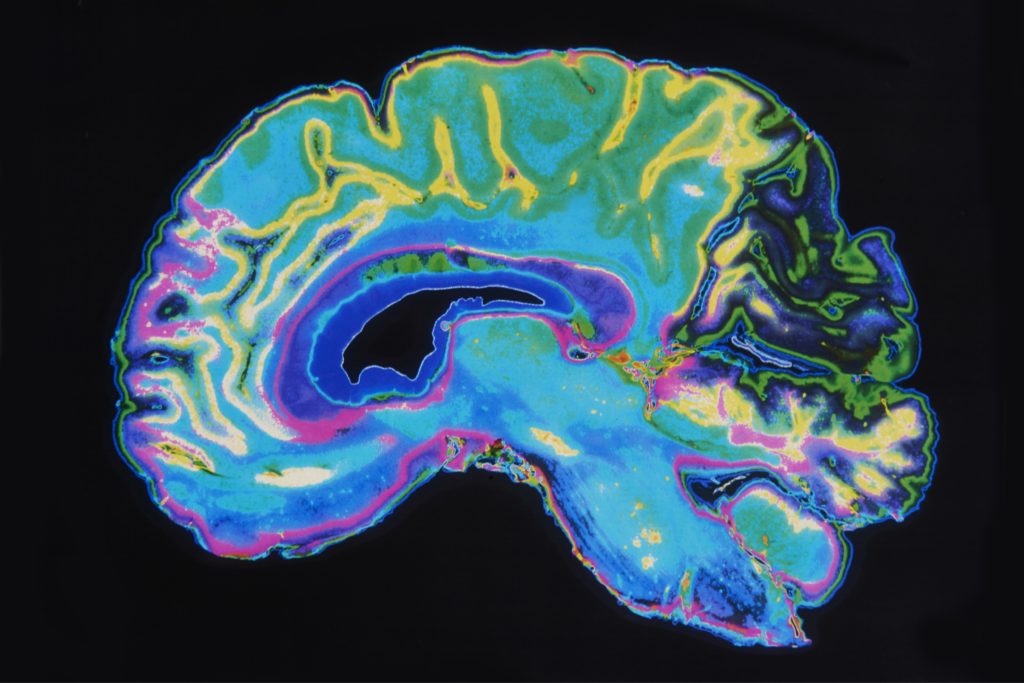Quick Hits
Daily brief research updates from the cognitive sciences

Teenagers’ brains are different – as many parents of teenagers notice quite intensely!
Adolescence is a critical period – we all know that. And the brain also goes through a number of changes, some of them well documented and others not. Adolescence is also a time when major mental illnesses such as depression and schizophrenia emerge but it also when risk-taking behaviour peaks.
Researchers at the University of Pittsburgh have now found compelling evidence of how this happens.
To do this the researchers around Maria Perica zoomed in on the prefrontal cortex of the brain. This region of the brain, at the front, your forehead, is considered the executive centre of the brain. The part that exerts control over other parts but also coordinates and consolidates lots of information. It is also an area involved heavily in decision-making.
Perica et al., used advanced imaging that gives double the resolution of normal imaging and compared the balance of two neurotransmitters in the fontal cortex of 144 adolescent and adult participants.
They specifically focused on the two main transmitters Glutamate and GABA. Glutamate is the brain’s man excitatory transmitter triggering action but also therefore involved in brain plasticity, triggering growth of the brain. GABA is the brain’s primary inhibitory transmitter, dampening and inhibiting transmission in the brain (also an essential function).
What did the researchers find?
They saw that the balance of glutamate increased through childhood and into adolescence before levelling off as adulthood approaches.
This suggest that this is putting the brain into a period of increased excitation and increased plasticity – the brain is at a stage of being able to sculpt and reform and also focus on things it may need in adulthood. This is also why exploratory but also risky behaviour increase at this time. Which as parents of teenagers know can also be challenging to deal with. But this is just nature preparing itself for adulthood.
There are also large risks such as the above-mentioned increased risk of mental illness.
This once again shows that teenagers behaviours are not just some strange psychological phenomenon but driven by a biological critical period of brain reorganisation – sometimes for the worse but mostly for the good.

Andy Habermacher
Andy is author of leading brains Review, Neuroleadership, and multiple other books. He has been intensively involved in writing and research into neuroleadership and is considered one of Europe’s leading experts. He is also a well-known public speaker, speaking on the brain and human behaviour.
Andy is also a masters athlete (middle distance running) and competes regularly at international competitions (and holds a few national records in his age category).
References
Maria I. Perica, Finnegan J. Calabro, Bart Larsen, Will Foran, Victor E. Yushmanov, Hoby Hetherington, Brenden Tervo-Clemmens, Chan-Hong Moon, Beatriz Luna.
Development of frontal GABA and glutamate supports excitation/inhibition balance from adolescence into adulthood.
Progress in Neurobiology, 2022; 219: 102370
DOI: 10.1016/j.pneurobio.2022.102370
More Quick Hits
How Meditation Helps Pain In Your Brain
Quick HitsDaily brief research updates from the cognitive sciences es, meditation can help with pain by changing your experience of it. I reported on that here. Another piece of research just published shows that how experienced meditators and...
When Stress Is Good For Brain Functioning
Quick HitsDaily brief research updates from the cognitive sciences tress gets a bad rap – understandably it is a negative experience and has been shown over long periods of time, and with high intensity, to cause multiple negative outcomes, from...
Put Your Smartphone Down and Let your Mind Wander – You’ll Be Happier
Quick HitsDaily brief research updates from the cognitive sciences here’s a lot been said about smartphone usage and how it can be used and abused. Most of this concern revolves around usage in children or teenagers, however, with some research...
The Amazing Impact Of Reaching Out To Your Old Friends
Quick HitsDaily brief research updates from the cognitive sciences few weeks ago a friend I hadn’t seen for about 10 years sent me a message and asked if I had time to meet up. I was elated. "Sure," I immediately messaged back, "when and where?!"...
Really? Belief In Conspiracies Not Increasing
Quick HitsDaily brief research updates from the cognitive sciences e may feel like we’re in an age of conspiracy theories, that social media is turbocharging the wild and wacky theories, and the so-called information bubbles are sending people down...
You Wake Up 100 Times Each Night – And That Helps Memory
Quick HitsDaily brief research updates from the cognitive sciences have written numerous posts and articles on sleep and the brain (review here), and the evidence is crystal clear. Good and consistent sleep is essential to all aspects of physical...






